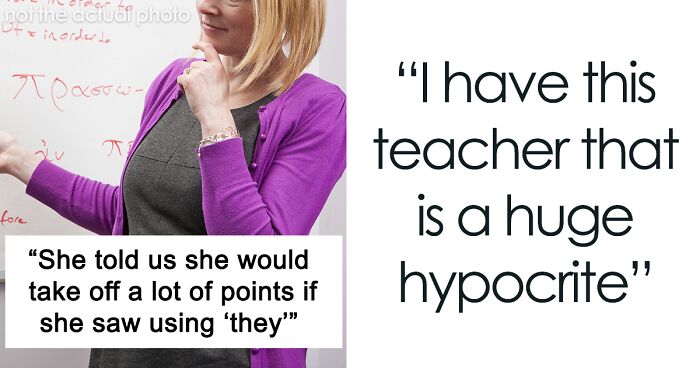
“This Drove Her Insane”: Teacher Can’t Penalize Student For Following Her Rule To A T
InterviewWhen you’re a kid at school, all teachers might seem evil, but some of them are actually worse than the others. That’s how they end up earning certain nicknames or facing malicious compliance.
The latter is what this redditor used when adhering to his teacher’s—Ms. Stinkybutt’s, in his words—rules. The teacher was determined to take off points for every “they” used in writing, which became the final straw for the student who decided to drive her crazy one pronoun at a time.
Bored Panda has reached out to the OP and he was kind enough to answer a few of our questions. Scroll down to find our interview with him in the text below.
Most people have likely encountered an irrational teacher or two in their lives
Image credits: Image-Source (not the actual photo)
This teacher drove her students mad, so one of them decided to do the same to her, using malicious compliance and pronouns
Image credits: xapdemolle (not the actual photo)
Image source: Lowkey_Sus_Ngl
The thing that annoyed the OP the most was the fact that the teacher was being harsh just for the thrill of it
“I think the thing that upset me the most about her was the fact that she isn’t a harsh teacher for the sake of education, but a harsh teacher seemingly for the thrill of it,” the OP told Bored Panda in a recent interview. “I’m sure she’s a decent person outside of school, but I really don’t think she should be an educator.”
The redditor revealed that the plan for malicious compliance was a spur-of-the-moment kind of decision. “I came up with the listing everyone out thing shortly after she had given me an awful grade for something arbitrary that any other teacher would’ve given me a low 80 at worst. I just saw my grade and decided to be petty in a way that wouldn’t inconvenience anyone but her,” he explained, adding that the few friends he told about the malicious compliance to suggested he should have done it sooner.
“I would like to add that Ms. Stinkybutt is totally okay,” the student said. “She showed up to class yesterday just fine. Also, most of us feel significantly less bad about wishing bad things on her because she loves to lament about her ‘dark humor’ and told us that for 30 years she always laughs at this one part of a book she’s read in class where a man who was mean to some children was trapped in a house on fire. Well, call that heart attack our house on fire.”
Teachers can significantly influence not only their students’ grades but also their overall well-being in school
Image credits: ThisisEngineering RAEng (not the actual photo)
Those who were lucky enough to have met at least one teacher they like know how big of a difference they can make in one’s studies. Take math, for instance; for those perpetually confused by equations and numbers, trying to survive a math class might be the closest thing to torture they’ve ever experienced. However, if they have a teacher who’s patient and kind—maybe even funny—enough, it can make the world of a difference (if not in the grades, in the learning process, at least).
Studies show that a teacher’s likability can have a positive effect on the student’s views towards their subject. Research also points out that good relationships with teachers are positively linked not only to academic motivation and GPAs but students’ perceptions of school climate as well. This goes to show that a likable teacher can help deal with challenges besides math problems.
Associate Professor and educational and developmental psychologist at Monash University, Kelly-Ann Allen, Ph.D., emphasized that positive social interactions are crucial for both the student’s academic achievements and overall well-being in school.
“Good relationships with teachers help students feel a greater sense of belonging and connection to the school community and encourage them to participate more actively. Student engagement in learning is linked to greater academic performance and is vital for a sense of belonging,” she explained in a piece for Psychology Today.
Quite a few people cherish fond memories of their favorite teachers in school
Image credits: Gabe Pierce (not the actual photo)
A survey of 2,000 Americans, commissioned by Staples and conducted by OnePoll, revealed that educators leave quite a significant footprint in students’ lives; as much as 83% of those surveyed said that a teacher has made a meaningful impact on theirs, the New York Post reports.
According to the survey, teachers have influenced more than just their students’ grades, as nearly half of the surveyees have them to thank for their personal values and morals, and nearly one-in-four—for the way they’re raising their own children.
When it comes to schooling-related matters, nearly 40% of Americans revealed that a teacher affected their level of education and their choice of college or a major. The survey also reported that among the educators students loved most, English teachers took the highest place on the podium, followed by teachers of math, science and history respectively. It also pointed out that quite a few people have stayed in touch with their favorite educators.
Despite quite a few people being appreciative of the effort their teachers put in, looking retrospectively at their years in school, the situation nowadays is seemingly not great when it comes to teacher-student connection. According to Education Week, the youth learn best when they feel cared for and connected to people in their school; however, nowadays the level of both knowledge and connectedness are reportedly going down, with the former reaching a new low with certain courses (math, history, and reading, to be exact).
It’s unclear whether the OP’s academic achievements were affected by the lack of a positive relationship with his English teacher. However, it seems that he learned one thing in her class nevertheless; that is never to use “they” in writing, which resulted in malicious compliance the teacher likely didn’t see coming.
Fellow redditors shared insight and personal stories in the comment section
My degree is in English, and I've always been in favor of using the neutral "they."
So what do you think of the trend that started on Wikipedia where plural verbs are now being used with collective nouns?
Load More Replies...I think I'm with you on this. Not about the teacher's stupid rule, but the student's response to it seems too "contrived TV character witty" to be real.
Load More Replies...My degree is in English, and I've always been in favor of using the neutral "they."
So what do you think of the trend that started on Wikipedia where plural verbs are now being used with collective nouns?
Load More Replies...I think I'm with you on this. Not about the teacher's stupid rule, but the student's response to it seems too "contrived TV character witty" to be real.
Load More Replies...
 Dark Mode
Dark Mode 

 No fees, cancel anytime
No fees, cancel anytime 







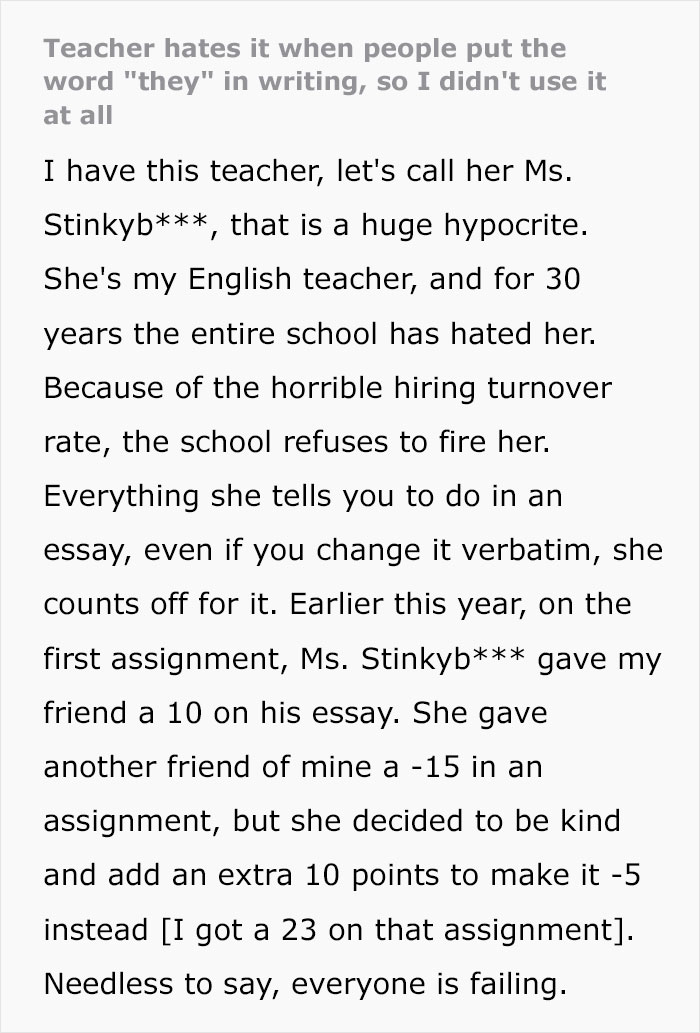
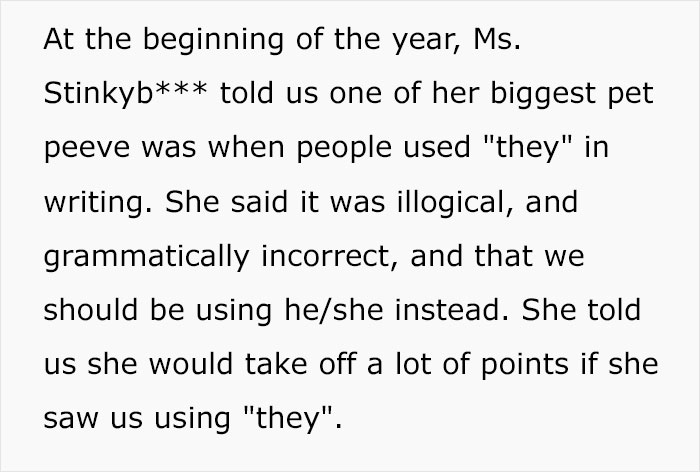
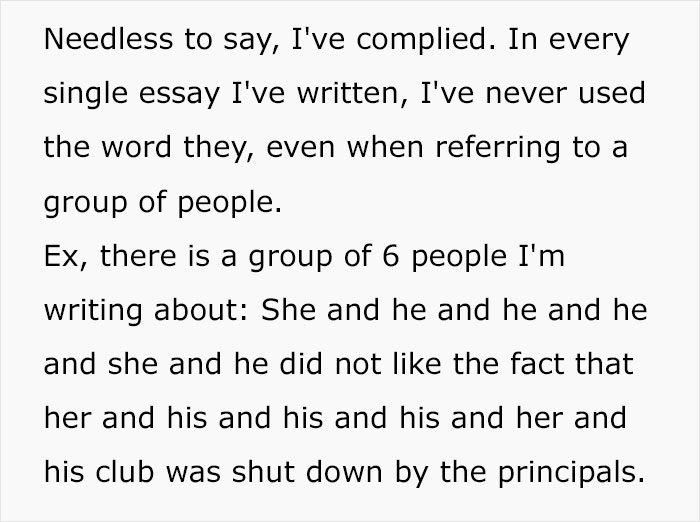
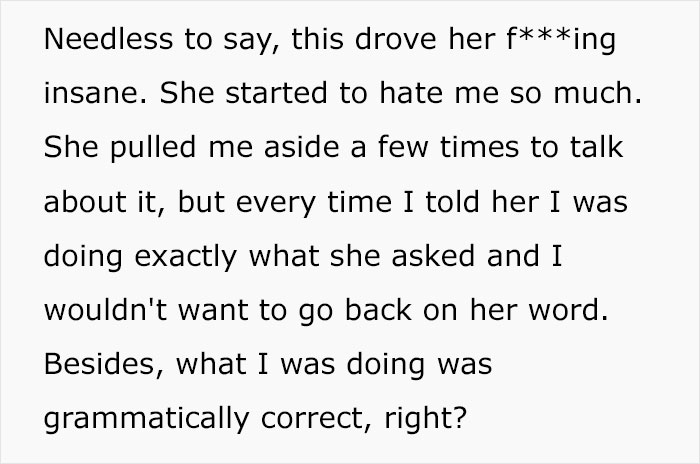

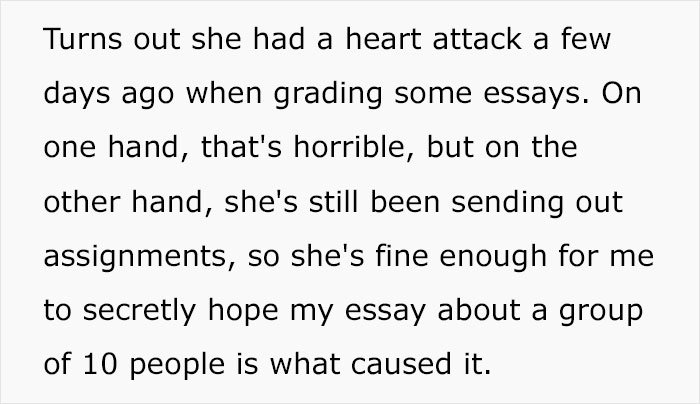

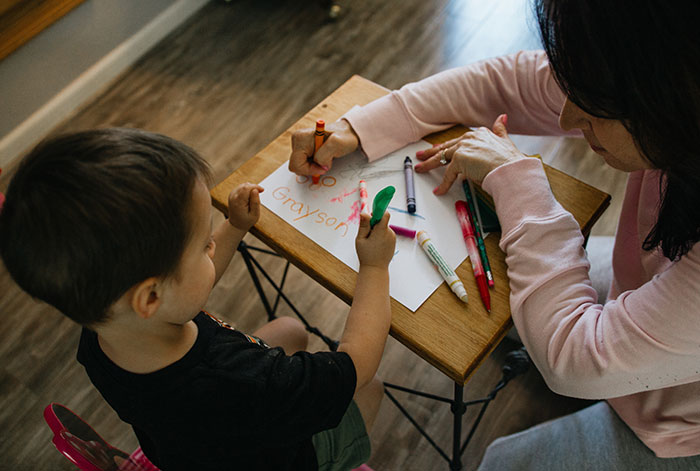



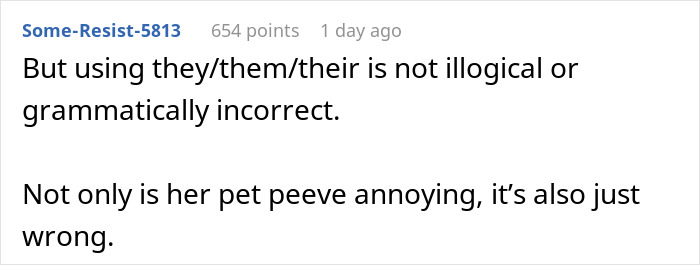

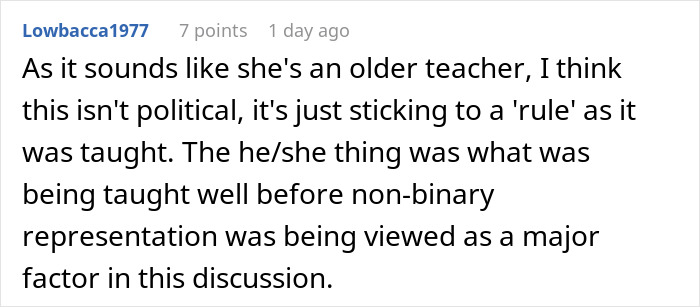

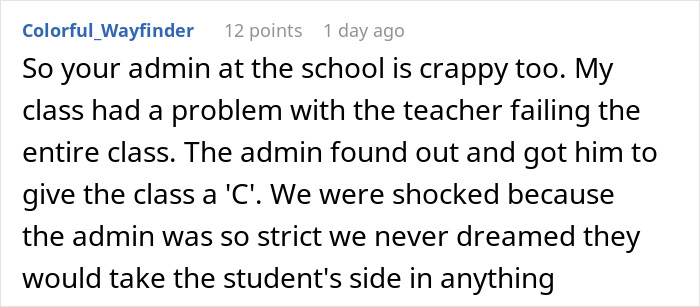
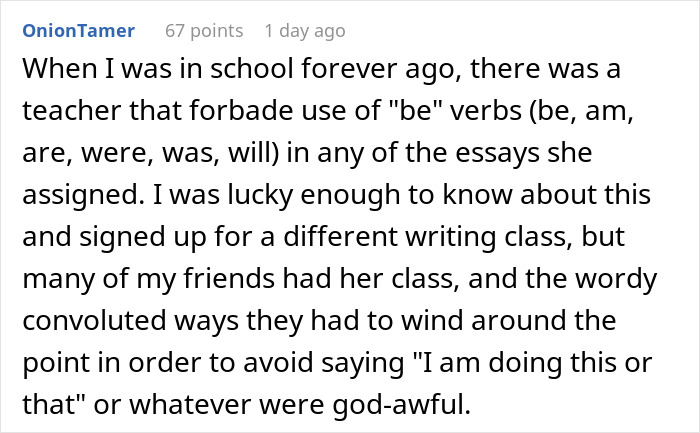












































36
32